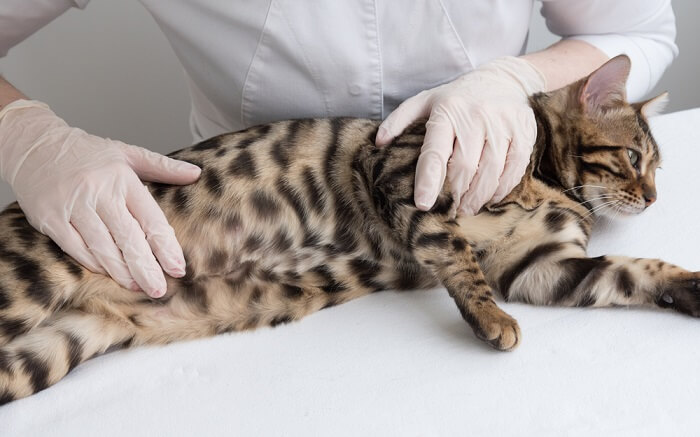

Many effective monthly preventatives are available such as Sentinel and Revolution. Hookworms and many other intestinal parasites can be prevented by using routine medications to deworm your pet. Kittens, rather than adult cats, are most likely to become infected with hookworms and can transmit the eggs in their stools. People can also develop intestinal hookworm infection by eating improperly washed vegetables grown in contaminated soil.
Feline hookworms in humans skin#
The hookworm larvae migrate through the skin causing an itchy rash known as cutaneous larva migrans. Humans are typically infected by walking through soil or sand contaminated with hookworm eggs. What is more disturbing is that PEOPLE can become infected with hookworms. Some pets may also have diarrhea if infested. Because contact of human skin with moist, larvae-infected soil is required, infection rarely occurs when good hygiene is practiced Evidence from the lab of Raffi Aroian, Ph.D., shows that. However, the tiny larvae can burrow into human skin, causing a disease called cutaneous larval migrans. Hookworms can cause severe blood loss and anemia in young puppies and kittens since they feed on blood from the intestines. Feline hookworms do not infect humans internally. Cats can be infected by larvae migrating into the skin or by ingesting a prey animal that is infected. Hookworm eggs move through a cats digestive tract and are excreted through cat feces. Feline hookworms do not infest kittens in this manner. Hookworms attach to the lining of a cats intestinal tract. Hookworms that infest dogs can also be passed from mom to pup through mom’s milk or to the puppies in the uterus before they are born. The larvae can also penetrate the skin of the dog or cat burrowing through the skin then migrating throughout the body until they reach the small intestine. These larvae can then infect a new host either by being eaten when a pet licks the ground or when the pet eats another animal such as a bird or mouse infected with hookworms. When a female hookworm lays eggs, the eggs pass out of the intestine through the host’s stool where they hatch into larvae. Hookworms are small worms that attach to the lining of the small intestine where they suck their host’s blood. There are several species of hookworms, but they all behave in a similar manner. Hookworms are intestinal parasites that affect both dogs and cats.


 0 kommentar(er)
0 kommentar(er)
